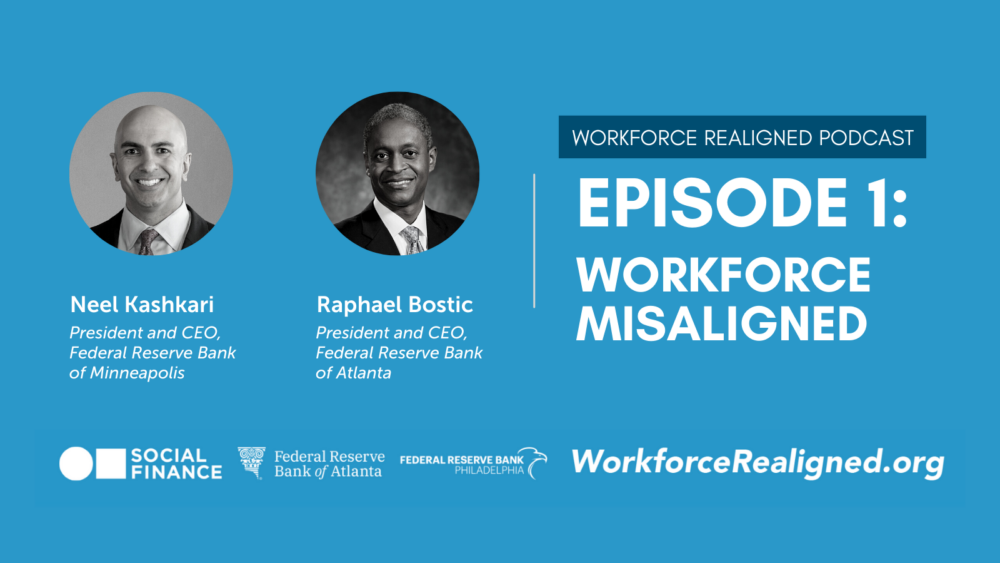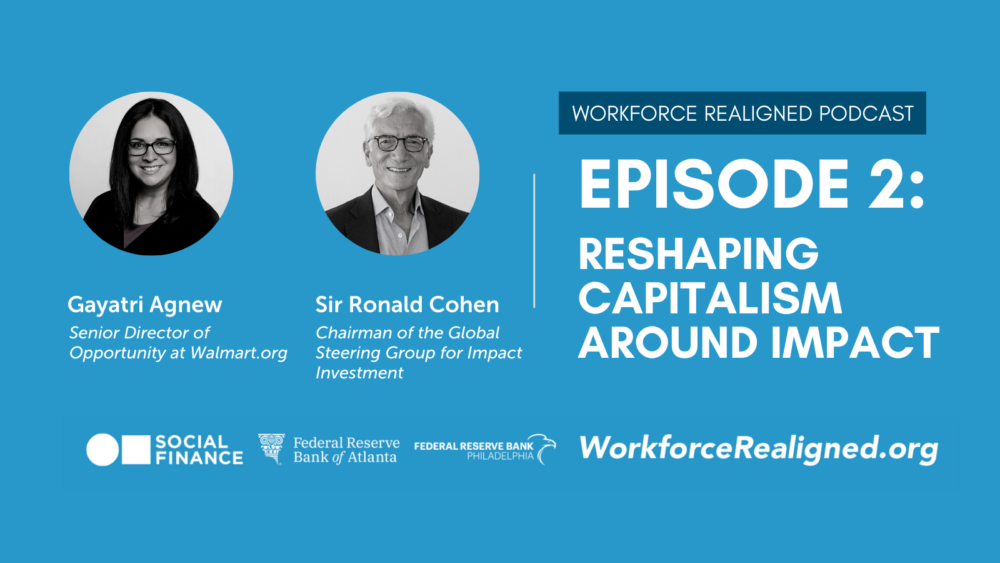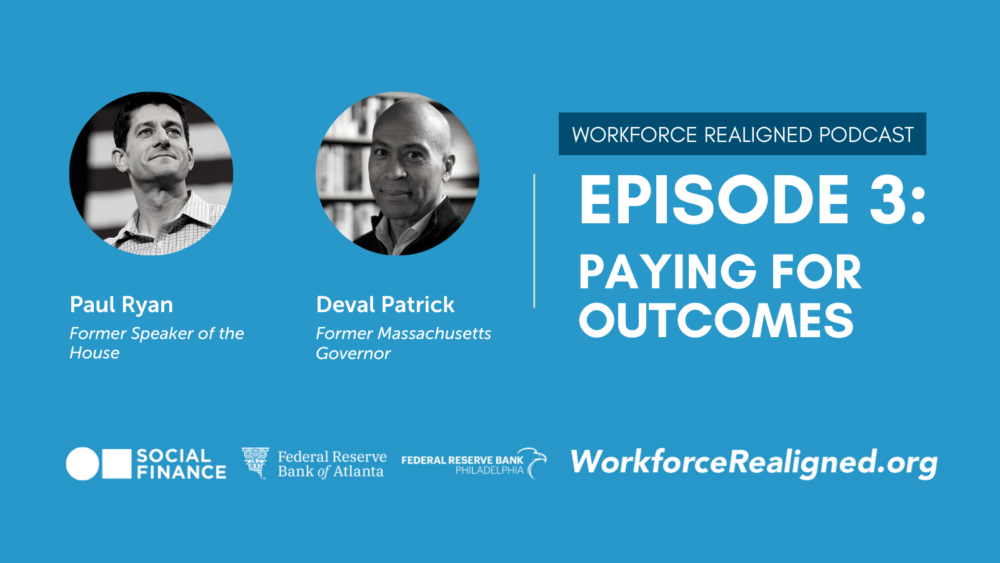

Key Takeaway
“More than 2 million women are out of work and women’s participation in the workforce has dropped to the lowest level in more than 30 years. To build a strong economy we need to invest in the care economy.” —Deputy Secretary Don Graves
This article is part of our Workforce Realigned blog series.
The U.S. economy is making giant strides in recovering from the pandemic. Current economic indicators are promising, with 3 million jobs added since January, layoffs stabilizing at pre-recession levels, and a 47% drop in the unemployment rate between June 2020 and June 2021. Yet, there is still work to be done: there were 7 million more American jobs before the recession, and the employment rate for low-wage workers is still down by 21% since January 2020.
When the Biden administration unveiled key details of its Build Back Better Agenda last month, however, its vision for equitable recovery took shape. In a White House briefing, Secretary Raimondo described the throughline between the agenda and the American Rescue Plan, which “delivered direct relief to the American people and was the first step to energizing the American economy following the devastating impacts of the coronavirus pandemic. Now, its medium-term investments will allow communities around the country not only to rebuild but reimagine their economy for the future.”
As Secretary Ramindo pointed out at the national launch event of our new book Workforce Realigned: How New Partnerships Are Advancing Economic Mobility, these kinds of investments in the US economy depend on simultaneous investments in American workforce development programs: economic revitalization takes jobs, and jobs take talent. As Secretary Raimondo put it, “investments in people and in human capital—people are starting to realize that that is economic development.”
Since those remarks, the Department of Commerce has delivered on its promise to pursue a people-first strategy, most recently sketching a roadmap for a $3 million investment in American talent. The plan lays out 6 programs under the umbrella of the Build Back Better Agenda, each designed to meet the needs of its target community. The Build Back Better Regional Challenge, for instance, will provide $1.5 billion dollars to up to 30 different regions seeking economic revitalization. Meanwhile, the Good Jobs Challenge brings apprenticeships, training programs, and wraparound supports necessary to make regional recovery a reality. Both programs dovetail with the Economic Adjustment Assistance program, which creates the economic bandwidth for newly-trained workers to have jobs to fill, putting $500 million toward job creation efforts nationwide. The Department of Commerce’s new agenda also zeroes in on specific industries and populations hit hardest in the past year, investing $750 million in the tourism sector, a historic $300 million in coal country, and an additional $100 million to meet the needs of Indigenous communities.
This is good timing, because the urgent truth of the moment is that the nature of work is changing. That shift has been long in the making, but now it’s here. Innovations in tech are reordering the skillsets that bring the greatest value to employers and the industries that create the greatest opportunity for employees. In Chapter 4 of Workforce Realigned, co-authors Secretary Gina Raimondo and Professor Jeffrey Liebman articulated how Rhode Island’s six-year workforce development strategy overhaul prepared the state’s workers to navigate this shifting labor landscape with a $14 million workforce development program “that targeted industries with strong growth potential such as biomedical innovation, data analytics, shipbuilding, advanced business services, health care, and logistics. The partnerships could train potential new hires, upskill incumbent workers, or do both.” To ensure that providers met these goals, the state monitored training contracts in real-time, using outcomes-based payments that held providers accountable for—and thus invested in—their clients’ long-term success. Rhode Island’s Temporary Assistance to Needy Families program, for instance, rewarded service providers whose young clients achieved a diploma, or whose working clients had a job six months out.
But preparing workers to adapt is just one piece of recovery. Build Back Better’s planned investments in the care economy reflect a growing pool of evidence that working parents’ access to and choice in affordable child care is make-or-break in overall prosperity. In fact, child care is the number one reason besides retirement that Americans are not working today, a point that Deputy Secretary Don Graves emphasized in a July roundtable with minority-owned business leaders: “More than 2 million women are out of work and women’s participation in the workforce has dropped to the lowest level in more than 30 years. To build a strong economy we need to invest in the care economy.”
Patching the holes in the nation’s care infrastructure will not only uplift individual U.S. workers, but also help the U.S. economy catch up to other industrialized nations, a point Ford Foundation President Darren Walker stressed during the Workforce Realigned launch event: “We’re the only industrialized nation that does not provide every worker with a set of support services to ensure that they work and that they are paid well. I think it is no surprise that we are being outperformed by some of these economies because they have the kinds of support, whether it be paid sick days, or whether it be support for time off to care for parents, longer periods of maternity, paternity, parental leave, if necessary.”
At the Workforce Realigned national launch event, Secretary Raimondo declared that “talent is the name of the game.” It’s a game we need to win in order to create equitable economic mobility.
Learn more about Workforce Realigned →
Related Insight

Workforce Realigned Podcast, Episode 1: Workforce Misaligned
In this Workforce Realigned podcast episode, Raphael Bostic, President and CEO of the Federal Reserve Bank of Atlanta, and Neel Kashkari, President and CEO of the Federal Reserve Bank of Minneapolis, discuss the need to…

Workforce Realigned Podcast, Episode 2: Reshaping Capitalism Around Impact
In this podcast episode, Sir Ronald Cohen, Chairman of the Global Steering Group for Impact Investment, and Gayatri Agnew, Senior Director of Opportunity at Walmart.org, discuss redefining the role of a corporation in society, measuring…

Workforce Realigned Podcast, Episode 3: Paying for Outcomes
In this podcast episode, former Speaker of the House Paul Ryan and former Massachusetts Governor Deval Patrick discuss outcomes-based funding approaches, the Social Impact Partnerships to Pay for Results Act (SIPPRA), and building public-private partnerships…